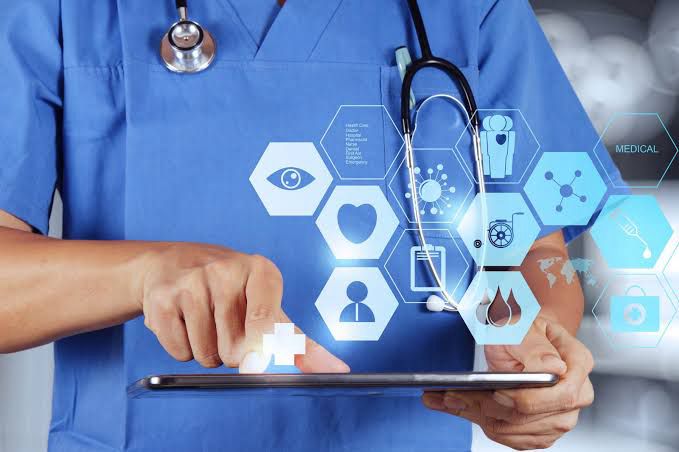Novel Application of Machine Learning and AI in Disease Detection and Prevention
By Chidiebere Sullivan Nwuguru
In the olden days, during the age of horse-drawn carriages, the invention of X-rays was a breakthrough for visualising the inside of the human body system. In our world today, the advent of Artificial Intelligence(AI) and Machine Learning(ML) has yet again brought us to the precipice of another medical revolution through its unparalleled computational prowess, thus, giving us the opportunity to mitigate the general cost of diseases. For a split second, let’s imagine a heavyweight boxer, full of energy and life, very entertaining; imagine the pride and fortunes his exploits bring to his family, fans and nation. Inversely, imagine that same boxer coming down suddenly with stroke and how such a predicament is going to cost him his career, thereby inflicting a huge loss to not just himself but his family, fans and the world at large; that’s how severe the cost of disease is in our world today. Surprisingly, the application of artificial intelligence and machine learning in healthcare has made it possible for health professionals and patients, to be able to monitor health conditions and even predict disease risks in the near future. For instance, in the case of the boxer we imagined earlier, with the application of machine learning through predictive analytics, it would be possible to predict the risk of stroke earlier, and possibly point out the causes and what should be done earlier to avoid such situations. Amazing, right? — that’s how robust the application of artificial intelligence has grown in most advanced countries’ healthcare systems.

Telemedicine has become a major medical innovation in the advanced nations, many developing countries have started to embrace it as well. Today, an old man living in a remote village can now access quality medical attention from healthcare professionals miles away from him, all to the glory of artificial intelligence and machine learning through telemedicine. This remote way of administering healthcare services has further improved the reach of quality healthcare delivery to people who would have not ordinarily accessed it. Also, gathering clinical data from patients which is very important in making healthcare decisions and research, has become seamless through the application of AI.
I once came across a healthcare tech company that produces wearable devices that are supplied to hospitals and clinics; these devices are issued to patients on treatments and even those on regular check-ups; with these, the hospital or clinic can monitor the progress of the treatment from their point of service while the patient goes about their normal life at their home. This way, it is easy to tell if the treatment is moving well, if the patient is following the directives well and if there is a need to change or improve the treatment. This scenario is a perfect picture of how artificial intelligence and machine learning through telemedicine help to improve quality healthcare delivery while making life easier for healthcare providers and cutting down costs for patients as well. Also, the data gathered from these patients during the course of this remote monitoring can be employed in predictive analytics to uncover actionable insights; these insights if implemented will help make predictions concerning future disease risk, thereby proffering ways to prevent such risk from coming into full play.

Many machine learning models as of today have been built and deployed to various healthcare facilities, government institutions, and even private companies to help monitor and give accurate predictions of disease risks such as cancer, diabetes, stroke, mental illness, etc. What these kinds of predictions do is take cognizance of the patient’s data and be able to predict with great accuracy when such a person is likely to suffer a certain illness; with this sort of insight, a medical professional is able to offer such a person quality medical advice that would help them avert such future predicament. Recently, I was part of a team that worked on a machine learning model that employs sentimental analysis, to generate a chatbot capable of demystifying one's mental health conditions, from the responses it gets from chatting with such a person. This way, it is able to offer quality medical advice to the individual, recommend a song or routine that would help improve the mental health, and if the situation is severe, then it would advise such a person to seek immediate medical attention from a healthcare professional.
Overall, the application of artificial intelligence and machine learning in healthcare has greatly revolutionised the healthcare system. I can only imagine the brighter future that lies ahead of us with its continuous growth and improvement every day. Until then, nations and every one of us should embrace its application in the nearest possible way we can.





